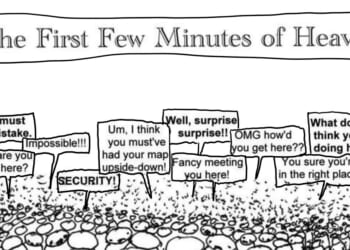In the subculture of the vibe-driven new right that suffuses much of MAGA world in the northeastern corridor, one of the commonplaces is the assurance that, whatever the putative obstacles at hand, “you can just do things.” It’s an invocation at once simple and powerful, elevating solutions perennially thought unsolvable—immigration, war, crime—into the realm of the achievable. It is not a denial of complexity, but it is a denial of complexity’s barrier. It turns out the one big thing that needs doing is typically a thing you can do.
“We are now seeing,” wrote New York Times reporter Michael Schmidt on Oct. 15, on the foremost practitioner of just doing things, “how a truly unshackled [Donald]Trump uses his power.” Those uses are instructive.
The border was complex, and it remains surpassingly so, but the one thing you can just do, we learned, is close it almost entirely. The interlocking series of Middle Eastern wars were complex, and they still are, but the one thing you can just do, we learned, is resolve most of them with diplomacy straight from Thucydides’s Athens. The descent of American cities into crime and disorder was complex, but the one thing you can just do, we learned, is restore them—or at least the national capital—to safety and order with an infusion of National Guardsmen and political will. The examples proliferate. Name a problem of long standing, and you can just do things to end it.
It is notable that the exhortation derives not from the politics in which it has taken root, but in the fast-moving, sometimes absurdist, and often spectacular milieu of high-profile entrepreneurialism that is—take your pick—currently building interplanetary rockets, barreling toward machine sentience, creating backyard nuclear reactors, and delving into bioengineering undreamt-of mere years past.
“You can just do things” is in this context a rejection of the future’s incremental advance that characterized our civics and material world between the final Apollo mission and the age of SpaceX. It is a determination to rise to the challenge, and to act decisively to fix problems both profound and urgent. The eschaton, in discrete miniature, may be brought forth here, and now, and that goes double when the problem at hand is not one of engineering, but mere policy.
“You can just do things” is, after all, an argument with especial purchase in the humanities, not the sciences. Materials are subject to natural laws. Policy is subject to the human will. That will has been absent on the Right, mesmerized by process and a false understanding of conservatism as fundamentally the preservation of the Left’s advances, for years. No longer.
That the entrepreneurs’ motto flourishes on the political Right and not the Left is revelatory. The Left writ large, in the United States and elsewhere, is approaching a terminal phase in its century-long construction of the administrative state. That state, designed to separate the political from the sovereign, is by its nature tyrannical, but in that separation it loses its capacity for decision. The evidence is empirical: Nowhere across history do we see the bureaucracy, the apparatus, or the power of the Left resolve over time toward alacrity, speed, and resolution in governance. It is not that it tends toward bad ends, but that it tends toward no ends at all.
In this light, the maturation, or more properly descent, of the American Left’s project is at hand, and just doing things is by its nature therefore directionally right. In Federalist No. 70, Alexander Hamilton writes that “Energy in the Executive is a leading character in the definition of good government,” and so it proves. A “truly unshackled Trump [using] his power” is not contrary to the American experiment, but essential to it. The anomaly is not that you can just do things, but that for a long while things were not done.
The counterpoint to all this, its relevant critique, is that it is only a prelude to Caesarism. Hamilton’s energetic executive, Donald Trump, and the whole ethos of doing things signals an executive-branch action that is neither prudent nor constrained. The response is twofold, firstly that American liberty survived the energetic-executive qualities of Thomas Jefferson, Abraham Lincoln, and beyond, and it is nowhere near those limits now.
Secondly, Caesarism is properly understood as a second-order effect, not a primary one. The original Caesar’s descent upon Rome was possible only because the late republic’s institutions were long since discredited. So too is the imperative to action now simultaneously grounded in both the American inheritance and American reality. To invoke another favorite phrase of the new right, one must know what time it is. Caesarism did not bring the republic to the precipice of ruin, but its antithesis did.
The hour is late, and the time is now. Every election is the last election, and every day is the hinge of history. You can just do things—and you must. It is not just a vibe. It is a moral imperative to act. The Right is, at long last, not just taking power, but using it, and what’s needed is more.
Thank you for your attention to this matter.
We publish a variety of perspectives. Nothing written here is to be construed as representing the views of The Daily Signal.

















